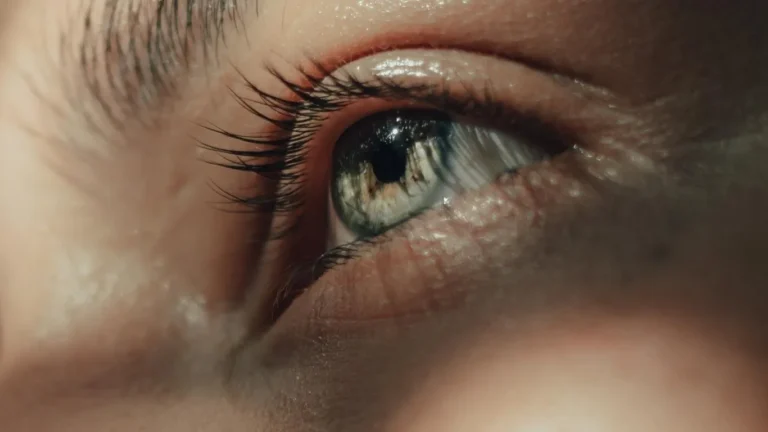The Link Between Headaches and High Blood Pressure – What You Need to Know
Are headaches and high blood pressure connected? You might have heard that hypertension (high blood pressure) can trigger headaches, but is it really true? In this guide, we’ll break down the science behind this link, and how you can manage both conditions.
If you’re prone to headaches, you might have wondered if your high blood pressure is the cause—or at least playing a role in them. Well, you’re not alone. It’s a common question. The relationship between high blood pressure and headaches is a bit complicated, but understanding it can help you manage both better.
So, What’s the Link Between High Blood Pressure and Headaches?
At first glance, it might seem pretty straightforward: high blood pressure means more pressure on the blood vessels, and that might cause pain, right? Well, sort of. Let’s break it down. High blood pressure (or hypertension) refers to the condition where the force of the blood against your artery walls is too high. This can put a strain on your heart, kidneys, and other organs. While most people with high blood pressure don’t feel symptoms, some might experience headaches, especially when their blood pressure spikes to dangerous levels. However, not all headaches are caused by high blood pressure. So, when we talk about this link, we’re usually referring to very high readings of blood pressure that cause immediate symptoms, including headaches. 
The Science Behind It
Here’s a simple way to think about it: when your blood pressure increases, it can cause your blood vessels to become more stressed. This can lead to inflammation, which may trigger the pain you feel as a headache. However, these headaches aren’t typical migraines or tension headaches; they tend to be more of a “pounding” or “throbbing” sensation. Most commonly, headaches related to high blood pressure occur when the condition has gotten to a severe or crisis level—usually when the systolic number (the top number in your reading) exceeds 180 mm Hg. At this stage, the headache is often a warning signal that something needs attention.
How High Blood Pressure Causes Headaches
As mentioned, headaches from hypertension are usually seen when your blood pressure hits dangerously high levels. But how exactly does this happen?
- Vascular Strain: The increased pressure can cause your blood vessels to stretch or become less elastic. This puts strain on the vessel walls and leads to pain.
- Brain Sensitivity: The brain’s blood vessels may react to the increased pressure, triggering the headache sensation. This could explain why some people report feeling pressure or tension in their head when their blood pressure is elevated.
- Increased Risk of Stroke: With high blood pressure, you’re also at a higher risk of stroke, which can sometimes cause headache-like symptoms, particularly if the stroke is minor.

Who Is More Likely to Have Headaches Due to High Blood Pressure?
If you’re wondering if high blood pressure always leads to headaches, the answer is no—but certain factors can increase the risk of having this combo. People who are more likely to experience headaches due to hypertension include:
- Uncontrolled Hypertension: Those whose blood pressure is not well-managed are more at risk. When blood pressure is high for long periods, the likelihood of experiencing complications, including headaches, increases.
- Older Adults: As we age, our blood vessels become stiffer and less flexible, which can exacerbate the pain from high blood pressure.
- People with Severe Hypertension: If your blood pressure reading exceeds 180/120 mm Hg, you’re more likely to experience headaches as a symptom of hypertensive crisis.
Types of Headaches Associated with High Blood Pressure
- Tension Headaches: These are the most common type of headache and can occur with elevated blood pressure. Tension headaches feel like a tight band around your head and can be worsened by high stress or anxiety.
- Cluster Headaches: Though rare, some studies suggest that people with high blood pressure may be at risk for cluster headaches, which come in cycles, often causing severe pain around one eye.
- Migraine-like Headaches: People with high blood pressure might experience headaches that resemble migraines, including nausea, vomiting, and light sensitivity, especially if their hypertension is poorly controlled.
Managing High Blood Pressure and Preventing Headaches
Now that we know the link, let’s talk about how you can manage both conditions to avoid frequent headaches.
1. Control Your Blood Pressure
The most effective way to prevent headaches associated with high blood pressure is to get that blood pressure under control. Here’s how:
- Medications: If your doctor prescribes antihypertensive medications, be sure to take them regularly.
- Lifestyle Changes: Adopt a heart-healthy diet, exercise regularly, and reduce your sodium intake. The DASH diet (Dietary Approaches to Stop Hypertension) is particularly helpful.
- Reduce Stress: Stress is a major contributor to both hypertension and tension headaches. Consider relaxation techniques like meditation or yoga.

2. Know the Signs of a Hypertensive Crisis
If your blood pressure reaches 180/120 mm Hg or higher, you should seek medical attention immediately. Symptoms like severe headaches, shortness of breath, and chest pain can indicate a hypertensive emergency, which requires urgent treatment.
3. Track Your Symptoms
If you experience regular headaches and have high blood pressure, keeping a headache diary can be really helpful. Track your blood pressure, any symptoms you’re experiencing, and the frequency of headaches. This information will help your doctor adjust your treatment plan if needed.
Appendices
FAQs
- Can high blood pressure cause headaches all the time? Not usually. Most people with high blood pressure don’t experience headaches unless their blood pressure becomes dangerously high.
- What should I do if I have a headache and high blood pressure? If you have a severe headache and high blood pressure, seek medical attention. It could be a sign of a hypertensive crisis.
- Can treating high blood pressure stop the headaches? Yes, controlling high blood pressure is the best way to prevent headaches related to hypertension.
- Is there any way to prevent headaches from high blood pressure? Managing your blood pressure through medication, diet, and exercise is the most effective way to prevent headaches.
- Can a normal headache be a sign of high blood pressure? Not necessarily. Most headaches are not related to blood pressure, but if your blood pressure is high, it can sometimes trigger a headache.
References
- American Heart Association. (2023). Hypertension and Headaches: What’s the Connection? Read Article
- Smith, J. & Taylor, R. (2022). Headaches and Blood Pressure: A Review. Journal of Medical Studies, 15(3), 45-50.
- National Institute of Neurological Disorders and Stroke. (2024). High Blood Pressure and Headaches. Read More
Disclaimer
The information provided in this article is for educational purposes only. It is not intended as medical advice and should not replace professional consultation with a healthcare provider. Always consult your doctor for any concerns about your health, especially if you’re experiencing frequent or severe headaches.

Dr. Gwenna Aazee is a board-certified Internal Medicine Physician with a special focus on hypertension management, chronic disease prevention, and patient education. With years of experience in both clinical practice and medical writing, she’s passionate about turning evidence-based medicine into accessible, actionable advice. Through her work at Healthusias.com, Dr. Aazee empowers readers to take charge of their health with confidence and clarity. Off the clock, she enjoys deep dives into nutrition research, long walks with her rescue pup, and simplifying medical jargon one article at a time.







